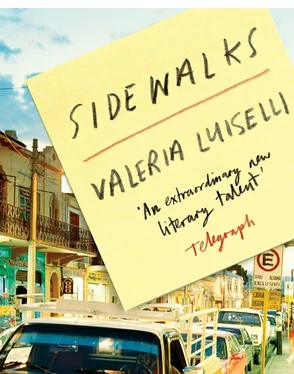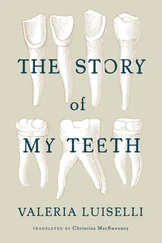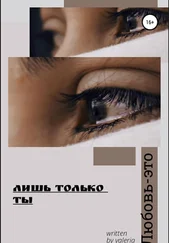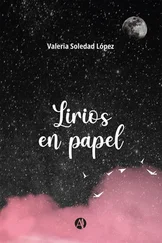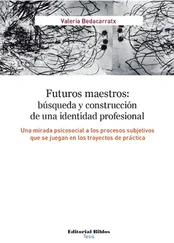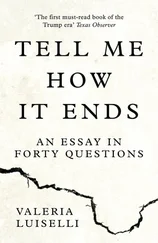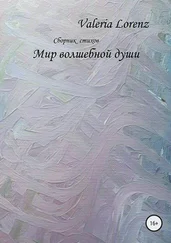“But perhaps,” Luiselli writes near the beginning of her book, “a person only has two real residences: the childhood home and the grave. All the other spaces we inhabit are a mere gray spectrum of that first dwelling, a blurred succession of walls that finally resolve themselves into the crypt or the urn — the tiniest of the infinite divisions of space into which a human body can fit.”
The reader that I am is inclined to disagree with her. There is a third residence for the homeless, and that is in writing; even if in Luiselli’s definition that means “drilling walls, breaking windows, blowing up buildings. Deep excavations to find — to find what? To find nothing.” Drilling, breaking, blowing up — I have no objections. As long as that “nothing” takes the form it has been given in this book, this paradox is easy for a reader to live with. Because whatever she thinks about it herself (“Nothing was further from the truth, in my life at least, than the metaphor of literature as a habitable place or permanent dwelling”), the relingo that Valeria Luiselli has created with Sidewalks is a sanctuary for her readers. Just as there are desert travelers, there must also be readers who feel at home in the seemingly uninhabitable spaces Luiselli depicts so well.
Cees Nooteboom
San Luis
JOSEPH BRODSKY’S ROOM AND A HALF
There is nothing more productive or more entertaining
than allowing oneself to be distracted
from one thing by another.
Unknown genius, possibly a reader of Blaise Pascal
Joseph Brodsky (1940–1996)
Searching for a grave is, to some extent, like arranging to meet a stranger in a café, the lobby of a hotel, or a public square, in that both activities engender the same way of being there and looking: at a given distance, every person could be the one waiting for us; every grave, the one we are searching for. Finding either involves circulating among people or tombs; approaching and scrutinizing their respective features.
To locate the grave, the definitive inscription we’re looking for, it’s necessary to examine the veining of the marble closely; for the face of the stranger, we must compare our expectations of the imagined profile with the various noses, chins, and foreheads present. We have to read the eyes of strangers, as an epitaph is read, until we find the exact insignia — the lapidary yes-it’s-me of the person, alive or dead, waiting for us.
Marcelino Giancarlo (1900–1972)
San Michele is a rectangular island, separated from Venice by a stretch of water and a high wall that encloses its cemetery. From an airplane, the cemetery might resemble an enormous hardcover book: one of those stout, heavy dictionaries in which words — like decomposing skeletons — rest eternally.
There’s something ironic about the fact that the poet Joseph Brodsky is buried there, facing the city in which he was always to be found, though forever just passing through. Perhaps he would have preferred a sepulcher far from Venice. When you come down to it, the city was, for him, a “plan B” or, to use a more literary metaphor, an Ithaca whose attraction consisted of being an always distant, imagined place. What’s more, Brodsky once stated in an interview that he wanted to be buried in the Massachusetts woods; or perhaps the right thing would have been to return the body to his native St. Petersburg. But I suppose there’s no sense in speculating about a person’s last wishes. If will and life are two things impossible to separate, so are death and chance.
It’s not easy to find Joseph Brodsky’s grave there. Unlike many cemeteries in Europe, San Michele isn’t a center of necro-intellectual tourism and so there are no guides or detailed maps, much less a list of the coordinates of its famous dead, like those at, for example, the entrances of Montparnasse and Père Lachaise. Other well-known people — Ezra Pound, Luchino Visconti, Igor Stravinsky, Sergei Diaghilev — are to be found in San Michele, but the location of their graves is only marked by a scarcely visible sign opposite the small, separate section where their remains lie. If you don’t know that the notable foreigners are separated from the ordinary Venetians, you can spend hours wandering around between the Antoninos, Marcelinos, and Francescos, without realizing that you’ll never find echoes of The Cantos or reverberations of The Rite of Spring .
Having searched for Brodsky’s grave for several hours that afternoon, without even finding Stravinsky’s, I was on the point of throwing in the towel. While gathering the strength to make my way to the exit of the cemetery, I sat down in the shade of a tree and smoked a cigarette.
Enea Gandolfini (1883–1917)
In his essay “On Running After One’s Hat,” G. K. Chesterton writes that if a person were to come across a cow during a country walk, only a true artist would be able to paint it, whereas he, not knowing how to draw the hind legs of quadrupeds, would prefer to paint the soul of that cow. I, who am neither an artist nor Chesterton, wouldn’t know how to do either of these things. I’ve never been among that class of people — whom I greatly envy — capable of losing themselves in the pensive contemplation of a bird in flight, the industrious coming and going of ants, the serene suspension of a spider hanging in its own secretions. I am, unfortunately, too impatient to find poetry in nature’s gentle rhythms.
But there’s no need for a special sensibility toward the animal and vegetable kingdoms in a cemetery. It’s enough to sit beneath the cypresses, gnomons of gigantic sundials, to allow oneself be possessed by the life force flourishing among the graves. Maybe it’s just the silence that magnifies the frenetic flapping of the insects; just the calm that quickens the languid creeping of the lizards; just the death that animates the dying leaves of the black poplars.
I was about to stub out my cigarette and head for the cemetery gates when there was a sudden outburst of squawks. First just a few, then dozens, and then hundreds — as if squawking were as contagious among birds as laughter among people. The philosopher Henri Bergson maintained that laughter can only occur if its object is or resembles the strictly human; that a cat or an umbrella can’t provoke laughter unless we see in them a human expression, form, or attitude. Could be. It seemed to me that, at least from a distance, the squawking sounded like the wheezing laughter of the elderly or the slightly insane, and for that reason alone I also burst out laughing in the midst of the silence. In any case, if I didn’t admit defeat in the task of finding Brodsky’s grave, it was simply down to the sudden rush of good spirits provoked by that prattling of hoarse seagulls. If I didn’t find the poet, I could at least check if they were indeed squawks and not elderly Venetians laughing their way through death’s door. Besides, why shouldn’t I run after a grave or some birds if Chesterton, so fat, so dignified, and so intelligent, had been capable of running after a hat?
Lidia Tempesta (1889–1932)
“If there is an infinite aspect to space,” writes Joseph Brodsky, “it is not its expansion but its reduction. If only because the reduction of space, oddly enough, is always more coherent. It’s better structured and has more names: a cell, a closet, a grave.” Brodsky recounts that the established norm for communal housing in the former Soviet Union was nine square meters per person. In the allocation of meters, he and his parents were lucky since, in St. Petersburg, they shared forty square meters: 13.3 apiece: 26.6 for his parents, 13.3 for him: a room and a half for the three of them.
Читать дальше
